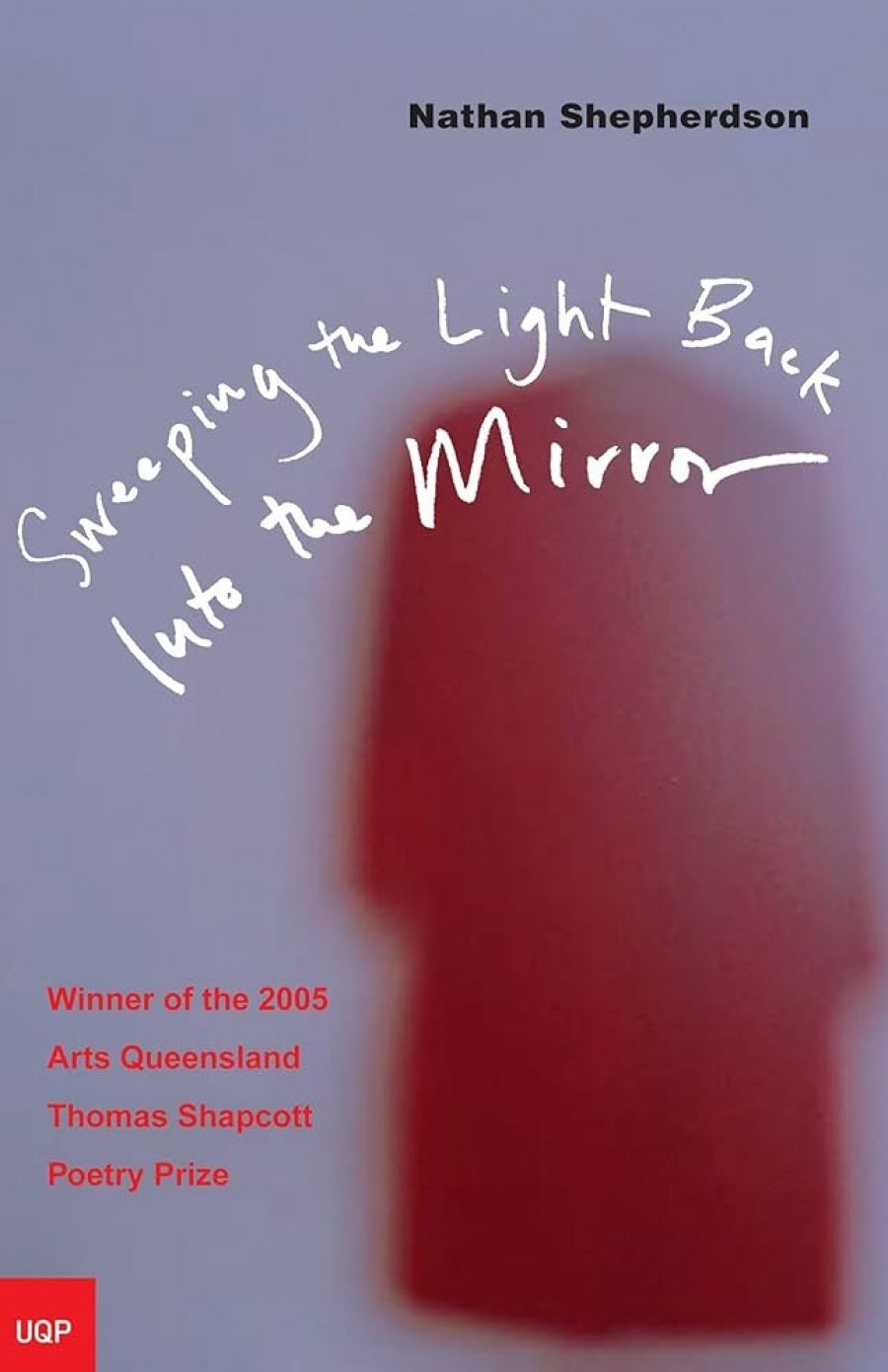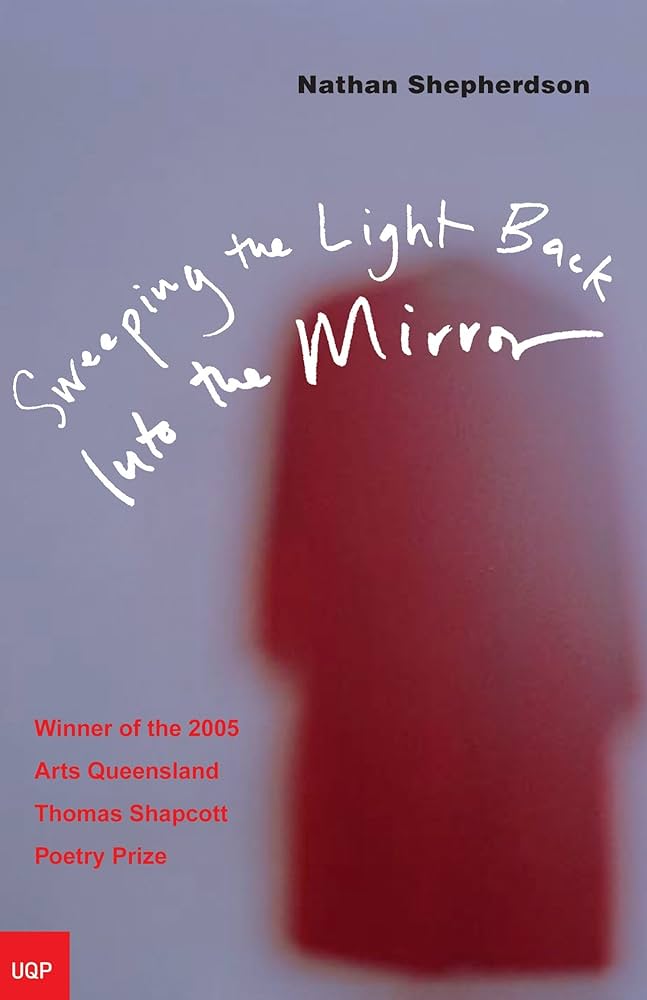
- Free Article: No
- Contents Category: Poetry
- Review Article: Yes
- Online Only: No
- Custom Highlight Text:
Recipient of the 2005 Thomas Shapcott Poetry Prize, Nathan Shepherdson’s surrealist, free-verse début, Sweeping the Light Back into the Mirror, is to be commended for its emotional bravery and its originality. At the collection’s Queensland launch, Shepherdson described what he had hoped to achieve in writing an extended elegy to his mother, Noela Mary Shepherdson. The poems were to be seen as gifts or letters – one for each of Noela’s seventy-two years – and represented a son’s attempt to honour his mother’s life.
- Book 1 Title: Sweeping the Light Back into the Mirror
- Book 1 Biblio: University of Queensland Press, $24.95 pb, 83 pp, 0702235695
- Book 1 Cover Small (400 x 600):

- Book 1 Cover (800 x 1200):

Sweeping the Light Back into the Mirror salutes the metaphysical requirements of the classic elegy by disrupting the material limitations of the human body. Shepherdson views the body as a ‘crumpled letter of introduction’; a vehicle destined for multiple transformations. In several poems, the son’s devotion to his mother approaches iconic or archetypal status, resonating with powerful imagery from Judaism and Christianity. Lines from the poem ‘No. 01’, for example, ‘we plant one foot in the mouths of both parents / this is the germination of memory’, recall the legend of Seth, son of Adam, planting a branch from the Garden of Eden in his deceased father’s mouth. In the exquisite piece, ‘No. 19’, the son, now forty, thinks back to a boyhood incident in which his mother was stung by a hornet. If it happened today, he muses, ‘i would have rubbed your swollen foot with ice and vinegar / dried it softly with the hair from your middle name’.
‘[Y]ou had faith / i had you’, notes poem ‘No. 57’. Through-out the collection, Shepherdson hints that his personal ‘gods’ are not to be found in organised religion, but in the contemplation and observation of his mother’s places of belonging in the earthly systems of renewal and return; and that, in writing (or reading) about grief, we might sometimes be gripped by an almost shocking beauty: we might ‘opalise our hands in the womb of this battered earth’.


Comments powered by CComment